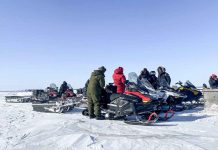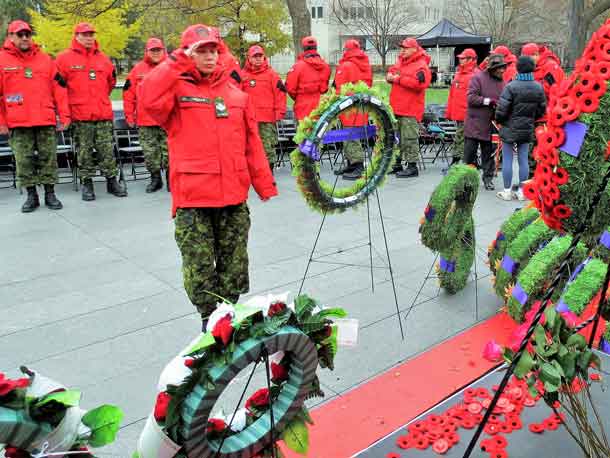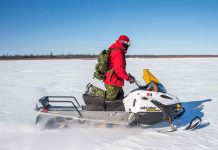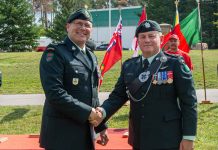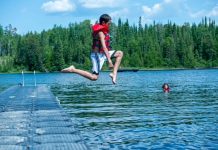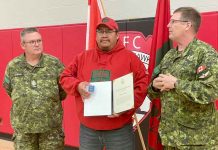
THUNDER BAY – Canadian Rangers from four Cree communities on the Ontario side of James Bay have completed a military training exercise designed to provide them with the skills to save lives in potential drowning situations.
“Rangers on the James Bay coast live on the water, they work on the water, and much of their recreation is on the water,” said Captain Mark Rittwage, the Canadian Army officer commanding the Rangers in northern Ontario. “And every year there are a number of deaths there and in other parts of northern Ontario related to boating. But the Rangers and others living in the North are generally not prepared to respond to drowning situations effectively.
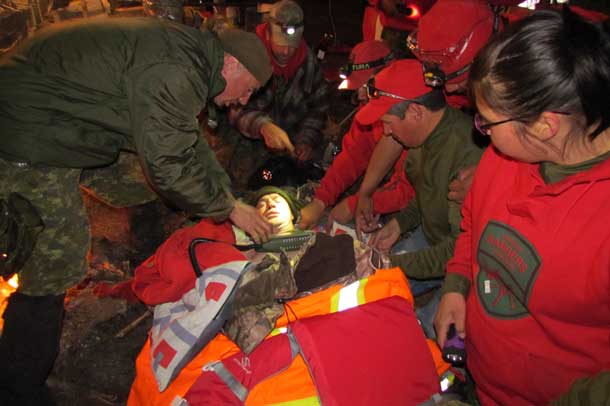
“The training they got on this exercise will help them to do that, and they can pass on what they learned to other Rangers, to their families, and to others in their communities. Will it help to save lives? I am sure it will.”
Northern Ontario has had the highest number of Aboriginal deaths by drowning in Canada for several years.
The training the Rangers received taught them several techniques, both with and without equipment, for rescuing a person who has fallen into the water from a boat and how to help a victim recover from exposure to cold water.
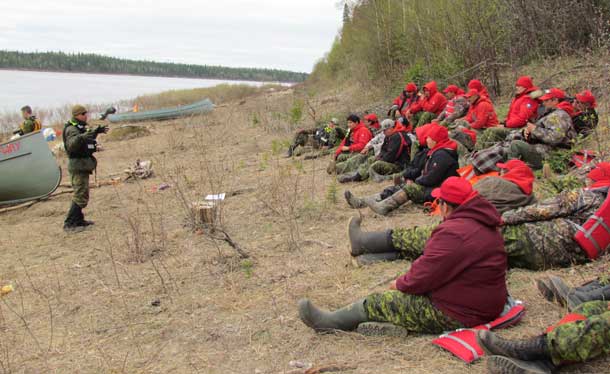
It was conducted on Cheepay Island, opposite the point where the Cheepay River empties into the Albany River, a place where oral history says Cree ambushed a raiding party of Iroquois in the 1600s. The spirits of the dead are said to haunt the place still. Cheepay is Cree for ghost or spirit. Many human bones have been found along the shores. The small island is 160 kilometers down river from Kashechewan.
The Rangers on the exercise were from Attawapiskat, Fort Albany, Kashechewan, and Moose Factory.
A surprise night exercise sent the Rangers looking for two men who were supposedly overdue from a fishing trip. The victims were two soldiers who lay in the cold waters of the Albany River for more than 10 minutes before they were found. When the Rangers found them the soldiers were wet, shivering, and extremely cold. The temperature was 4C.
“We wanted to make it as real as possible,” said Warrant Officer Carl Wolfe, an army instructor. “So when we conduct training like this we actually put the victim in the water. They really are cold and wet by the time they are found and it really does matter to get them warmed up as quickly as possible. It makes for realistic training and it’s very effective.”
Many of the Rangers said were shocked to find the victims were not the dummies they were used to in much of their training.
“Usually, when we train everyone is pretty relaxed,” said Master Corporal Byron Corston of the Moose Factory Ranger patrol. “Everybody’s laughing and joking. But as soon as we realized it was a real situation, that someone was really cold and wet, our adrenalin and training kicked in and we wanted to get them warmed up as quickly as possible. We used what we had been taught and you learn in a situation like that right away. It was exhilarating.”
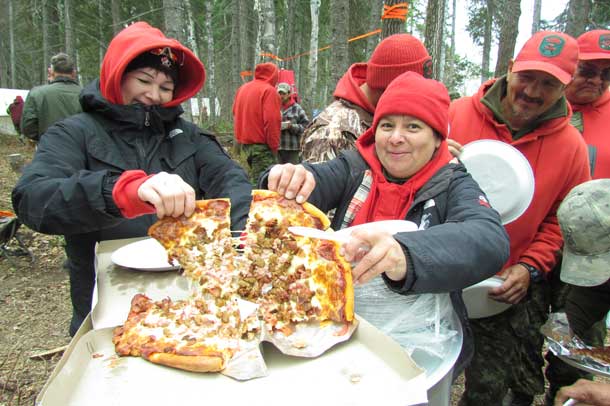
The training included how to respond to an incident in which there are more casualties than emergency responders and victims have to be prioritized depending on their injuries and conditions.
(Sergeant Peter Moon is the public affairs ranger for the 3rd Canadian Ranger Patrol Group at Canadian Forces Base Borden.)

